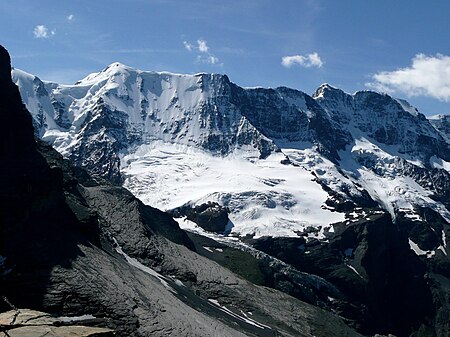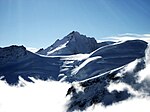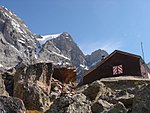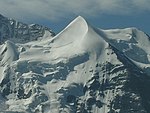Ebnefluh
Alpine three-thousandersBernese AlpsBern–Valais borderCanton of Bern mountain stubsMountains of Switzerland ... and 5 more
Mountains of ValaisMountains of the AlpsMountains of the canton of BernThree-thousanders of SwitzerlandValais mountain stubs

The Ebnefluh, also known as the Äbeni Flue and the Ebenefluh, (3,962 m) is a mountain of the Bernese Alps, located on the border between the Swiss cantons of Bern and Valais. It lies towards the eastern end of the Lauterbrunnen Wall.
Excerpt from the Wikipedia article Ebnefluh (License: CC BY-SA 3.0, Authors, Images).Ebnefluh
Geographical coordinates (GPS) Address Website Nearby Places Show on map
Geographical coordinates (GPS)
| Latitude | Longitude |
|---|---|
| N 46.508055555556 ° | E 7.9530555555556 ° |
Address
Fieschertal
Wallis, Switzerland
Open on Google Maps











